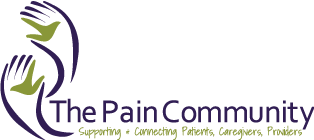
Despite wide agreement that prescription monitoring programs (PMPs) can be valuable healthcare delivery tools and extremely effective at preventing “doctor shopping,” PMPs remain under-utilized, with most states reporting approximately one-third or fewer of authorized prescribers and dispensers using them. Undoubtedly, one of the most important policy needs around PMPs involves ways to promote widespread, even universal, use of PMPs in patients who are prescribed controlled substances. Some policy efforts that can further this goal include:
- Supporting greater integration of PMPs with electronic health records (EHRs) and health information exchanges (HIEs). Currently, providers using EHRs and HIEs have to leave those systems, open another computer window to obtain a PMP report, and then return to the EHR or HIE and summarize the PMP report. This is a time-consuming practice that, if repeated several times per day, can quickly become tedious and could add an hour of more to a provider’s work day. Successful pilot studies integrating PMP reports directly into EHRs and HIEs have been conducted, and policymakers should carefully consider what more can be done to support rapid integration of these systems.
- Considering a requirement that all eligible PMP users be registered to access the PMP. One method to do this involves tying PMP system registration to professional license renewal. Having all eligible users registered removes one barrier to accessing the PMP.
- Considering incentivizing use of the PMP. Providers might be more likely to use the PMP if they were incentivized by, for instance, a slight reduction in malpractice insurance premiums or slightly greater reimbursement from third-party payers. Such incentives are likely to be much better received by providers than unfunded mandates to use the PMP.
- Encouraging the use of unsolicited reporting of patients who meet certain criteria to the healthcare providers prescribing and dispensing for them. Alerting providers to the behavior of these patients may help reduce “doctor shopping,” although it should be noted that it will be ineffective for the most prolific “doctor shoppers,” who rarely return for a second visit with a given prescriber or dispenser.
- Finally, considering a requirement for mandatory PMP checks with each initial prescription for a controlled substance. While such mandates are likely to meet with resistance from providers, a simple PMP check prior to writing the first controlled substance prescription for a patient should virtually eliminate “doctor shopping.”
| Website | http://painsproject.org |
|---|---|
| Author(s) | Twillman, Bob, PhD, FAPM |
| Attribution | Courtesy of PAINS Project |
| Document | Download PDF |
